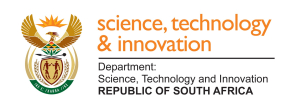Biotechnology offers effective options for mitigating climate change: Tlou Masehela
The impact of the global phenomenon of climate change has become increasingly evident over time – with realities and experiences in some parts of the world being harsher than in others. At the same time, debates on the impact of climate change continue, especially in the political space. Nevertheless, scientists are increasingly providing tangible evidence and advocating for mitigation measures that need implementing as a matter of urgency.
Climate change will affect human well-being to various degrees, through impacts on health, agriculture, fisheries, forestry and surrounding ecosystems. The various events of climate change and the rapidly changing climatic patterns have begun to challenge how people adapt to the risks and threats to their daily life activities in general, livelihoods and, most importantly, food production, which determines their food security and much needed nutrition.
The World Economic Forum recognizes biotechnology as an instrumental tool that has opened up new possibilities in the field of medicine, industry, environment and agriculture. For example, agricultural biotechnology plays a critical role in helping to feed an expanding global population. Environmental biotechnology may be effective in addressing various problems relating to pollution and clean energy. Although there are still some concerns about safety (health and environment) and certain ethical issues, there are some great prospects for the technology. For climate change mitigation, in particular, the technology is already beneficial in the following spheres:
- Specific genetic modification of crops may improve crop yields and quality, increase nutritional value; reduce and resist diseases, pests and pathogens, and confer tolerance or resistance to drought, flooding, heat, and salinity. Recently, research has shown climate extremes such as drought, flooding and heat account for at least 18-43% of variation in crop yields. Therefore, GM technology may be an important tool to produce more resilient crops and assist in adapting to climate change;
- Scientists are working on major agricultural crops (e.g. maize and soybean) to create plants that can mitigate climate change by trapping carbon dioxide emissions in the soil. These plants might have the potential to efficiently remove carbon dioxide (CO2) from the atmosphere and sequestering it in the ground;
- In instances whereby environmental restoration is needed, mycobiotechnology – a fungal application of biotechnology – can be applied to help restore degraded ecosystems. This tool has demonstrated some potential in the restoration of environments that have been damaged from anthropogenic or natural disasters, particularly in the regeneration of degraded forests;
- Climate change is predicted to have great impact on the spread and severity of various diseases globally, with poorer (developing) countries likely to suffer the most. Various tools within the biotechnology space are contributing in improving diagnosis of disease, generating new vaccines and drugs to prevent and treat disease, and improving the efficiency in delivering different medicinal and therapeutics procedures;
Climate change threatens ecosystems and human well-being. The magnitude and frequencies of the different impacts are likely to differ at regional and national scales, and the formulation and implementation of reliable policies and strategies to adapt to the changes will require in-depth understanding of the impacts to be able to inform priority focus areas for mitigation. These examples of how biotechnology can serve as a mitigation tool are but a few of many that scientists globally are continuously working on to minimise the impact of climate change.
Further reading:
Afzal et al., 2016. Role of Biotechnology in Improving Human Health. Journal of Molecular Biomarkers & Diagnosis, 8: 309
Blignaut, J.N. and De Wit, M.P., 2004. Sustainable Options: Economic Development Lessons from Applied Environmental Economics in South Africa. Juta and Company Ltd.
Datta, A., 2013. Genetic engineering for improving quality and productivity of crops. Agriculture & Food Security, 2(1), p.15.
Tesfahun, W., 2018. Climate change mitigation and adaptation through biotechnology approaches: A review. Cogent Food & Agriculture, 4(1), p.1512837.
Vogel, E., Donat, M.G., Alexander, L.V., Meinshausen, M., Ray, D.K., Karoly, D., Meinshausen, N. and Frieler, K., 2019. The effects of climate extremes on global agricultural yields. Environmental Research Letters, 14(5), p.054010.
About the author
Tlou Masehela is currently employed as a scientist at the South African National Biodiversity Institute (SANBI), and leads the programme of work that focuses on monitoring and reporting on the impacts of Genetically Modified Organisms (GMOs) on the environment. He is also the current chairman of the Western Cape Bee Industry Association (WCBA). He holds a PhD in Entomology from Stellenbosch University. Among other subject areas of work and interest, Tlou’s is involved in biosafety, environmental risk assessments, insect crop pollination and forage needs (honey bees in particular). He is passionate about educational outreach programmes and most of his interactions are based on the subject of insect pollinators (e.g. honey bees).


 The South Africa Agency for Science and Technology Advancement (SAASTA) is a business unit of the
The South Africa Agency for Science and Technology Advancement (SAASTA) is a business unit of the 